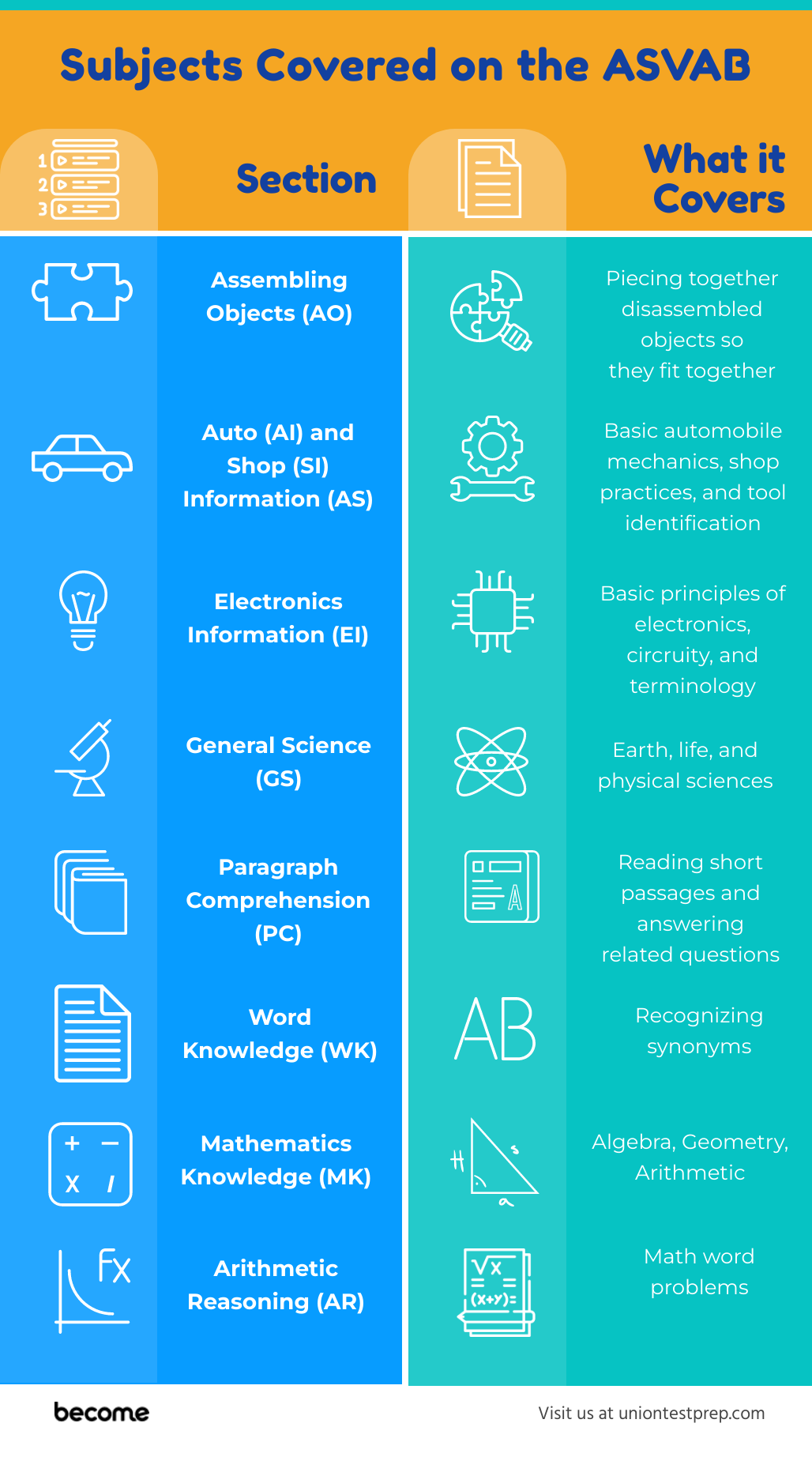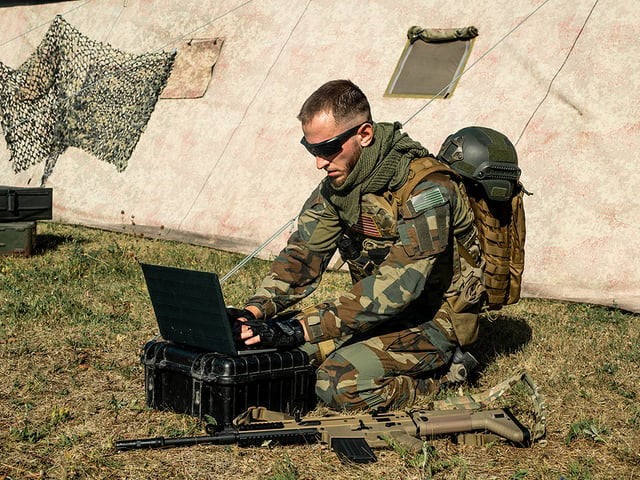
Is the ASVAB Hard?
If the ASVAB is in your future, you may be wondering, “Is the ASVAB hard?” While the difficulty level of any test is subjective, the ASVAB isn’t unreasonably difficult, especially when you prepare for the test in advance. Now we know what you’re thinking—where do you even start studying for an exam with nine sections? Great question! We’ll break it down for you so you can study smart and get the ASVAB score you want the first time around.
What’s on the ASVAB?
If you do a quick social media search asking if the ASVAB is hard, you’ll find all sorts of opinions—everything ranging from “It was one of the easiest tests I took in my life!” to “What even was that?!” You’ll find many subjects you’re likely already familiar with on the ASVAB, such as General Science, Mathematics Knowledge, Arithmetic Reasoning, Paragraph Comprehension, and Word Knowledge. While some of those sections may sound complicated, they are basically just the science, math, and English you’ve already learned in school. The four remaining sections—Electronics Information, Auto and Shop Information, Mechanical Comprehension, and Assembling Objects—may be less familiar.

How are ASVAB Scores Calculated?
There are four sections that are critical for anyone taking the ASVAB: Arithmetic Reasoning, Word Knowledge, Paragraph Comprehension, and Mathematics Knowledge. These four sections make up what is known as your AFQT Score, and what people are referring to when they tell you what score they received on the ASVAB. To calculate your AFQT score, the military combines your Word Knowledge and Paragraph Comprehension scores into a Verbal Expression Score (VE), and then adds that to your Mathematics Knowledge and Arithmetic Reasoning score to form a AFQT raw score. This raw score is then translated into a percentile score that compares your result to a group of 6,000 others. So if you receive a percentile score of 82, that means you did better than 82% of the people in your comparison group.
In addition to AFQT scores, service composite scores (often referred to as line scores) are used to determine where a test-taker may excel in certain military jobs. The sections of the ASVAB that make up a line score depend on the military branch and the specific military job. For example, line scores for a Skilled Technician in the Marines focus on achievements in General Science, Verbal Expression, Mathematics Knowledge, and Mechanical Comprehension, whereas a Surveillance and Communications MOS in the Army focuses on Verbal Expression, Arithmetic Reasoning, Auto and Shop, and Mechanical Comprehension scores.
How to Study for the ASVAB
If you have the time and love to learn, the most obvious answer is to study all the ASVAB material you can get your hands on for as long as you can. However, if you’re a real person with a life outside of academic pursuits, that answer might not be very practical.
-
Your best study plan depends on a variety of factors: your own personal academic strengths and weaknesses, the branch of the military you’re interested in, and the military job you’re hoping to have.
-
If you’re short on time, at the absolute minimum, you should study for the four sections that make up your AFQT. Take ASVAB practice tests to get a feel for what the questions will look like and how difficult they might be.
-
Brush up on concepts you might be unfamiliar with or totally forgot (who has the brain space to remember all those 10th grade math formulas?) by reading textbooks or more curated ASVAB study guides.
-
If you are really short on time and want a quick test of your knowledge, ASVAB flashcards can help clue you in to terms and concepts you need to know for test day.
-
Focus on any weaknesses. If you’re very strong in English but not so great in math, focusing on the two math sections will likely help boost your score overall, and the reverse is true if you’re great with numbers but find subjects like English and reading unbearably hard.
-
Beyond studying for the English and math components of the test, where you focus energies next depends on your individual situation. Are you a student with no idea what military branch or jobs you’d be interested in taking the Career Exploration Program version of the ASVAB? It’s probably a good idea to study harder for AFQT sections, and then divide your time studying for the others evenly to see where your scores end up. If you do really well in General Science but horrible in Mechanical Comprehension, that may influence what types of military jobs you look at pursuing in the future.
-
If you’re taking an Enlistment Testing Program ASVAB, you will want to both nail your AFQT sections and do well in the subjects that are a part of the line scores for jobs you may be interested in. If you’re really hoping for an Electronics job in the Army, you would want to study for the four AFQT sections, General Science, and Electronics Information.
-
If you haven’t already, it’s worth contacting a recruiter to discuss some job options for the branch you’re interested in so you can better focus your energies studying for test day.
So while it may not be the easiest test you’ll ever take (hey, there’s a reason why the United States military is the most elite in the world!), the ASVAB is not unbearably hard. With some advanced preparation and a smart study focus, you can get the ASVAB score you want on the first try—and get a military job you’ll love for the rest of your life!
Keep Reading

Armed Services Vocational Aptitude Battery Blog
What is the ASVAB Test?
The Armed Services Vocational Aptitude Battery, known as the ASVAB, is …

Armed Services Vocational Aptitude Battery Blog
Military MOS Codes
Military Occupational Specialty (MOS) codes are an integral part of the…

Armed Services Vocational Aptitude Battery Blog
U.S. Army Height and Weight Standards for Females
The U.S. Army’s commitment to maintaining a robust, physically fit, and…